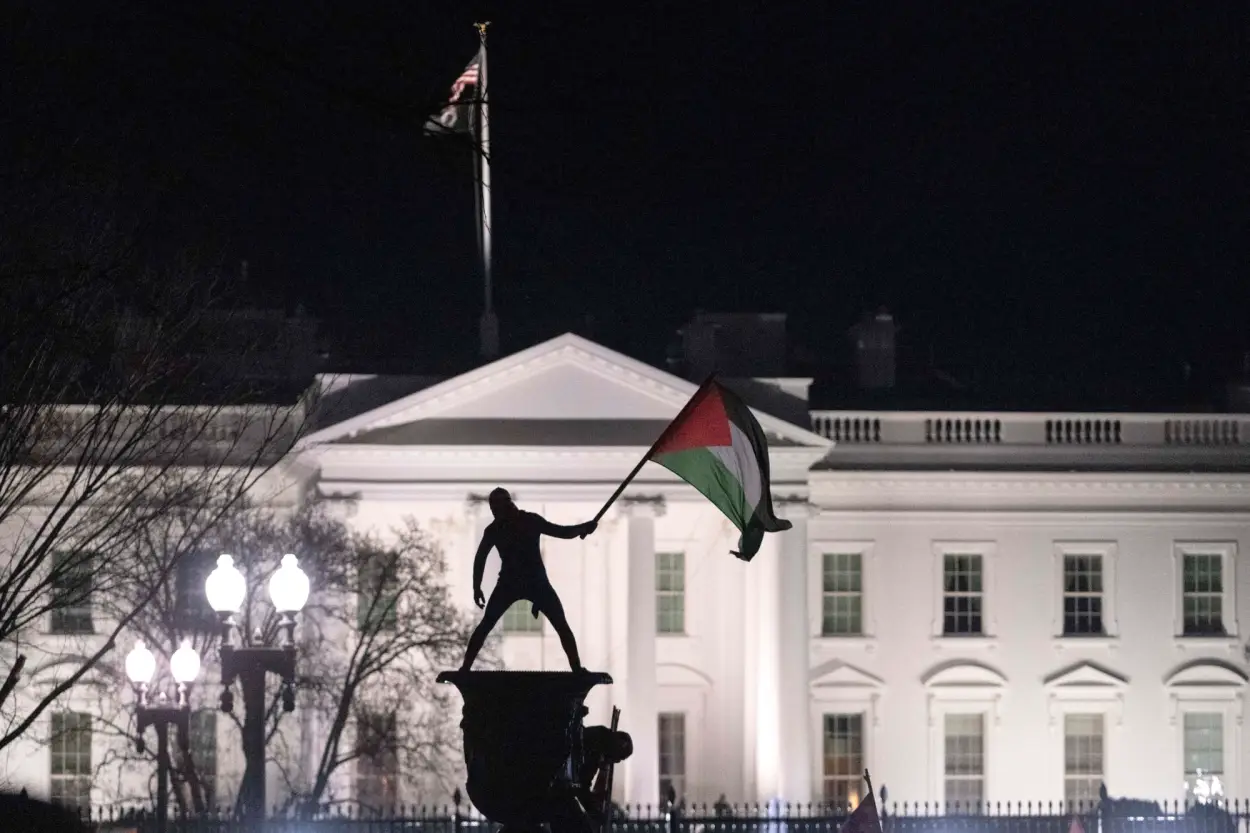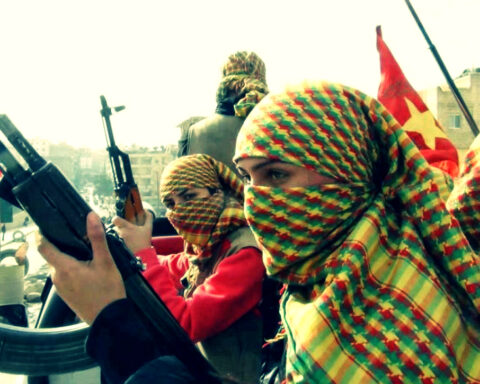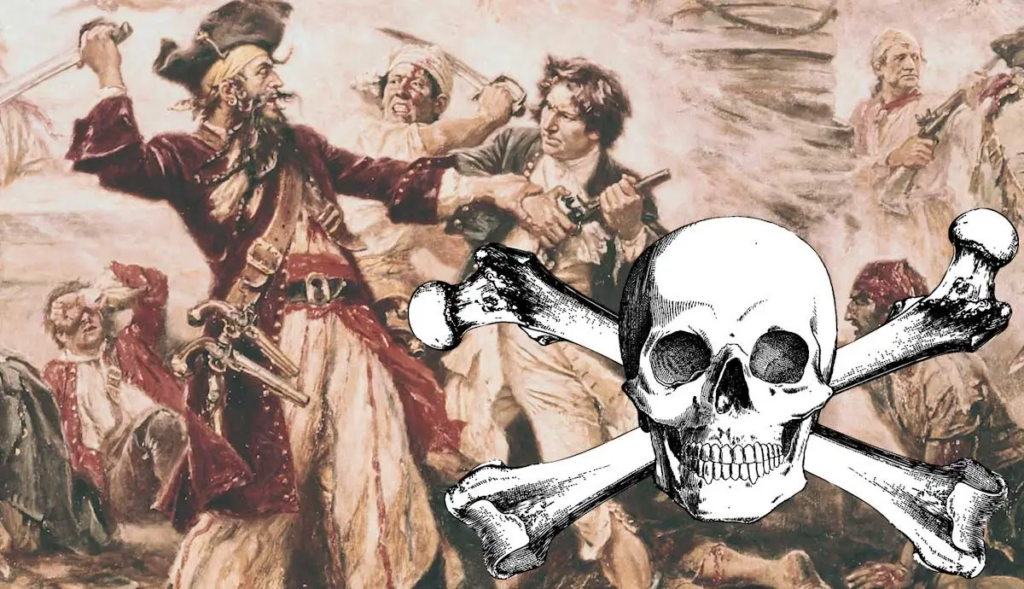Those who say that Israel knew about the plans for October 7 all along are repackaging an old colonial trope which believes that the natives are too docile, too submissive, too cowardly, and too inferior to revolt against their oppressors.
By Zubayr Alikhan
On October 7, 2023, the Palestinians launched the greatest decolonial operation in Palestine’s history. They sawed off their shackles, tore down their cage, and seared through the iron walls. The Palestinians took to the skies. They blinded cameras, severed communications, and penetrated settlements. They paralyzed a nuclear settler colony and brought the empire to its knees. They severed the umbilical cord of impregnability, safety, and sacrosanct dominion, vital to all colonial projects.
Immediately, imperial scribes and politicians, colonial settlers and administrators, conservatives and liberals — especially liberals — went to work. Their task was two-fold: ensure the world sees the natives as the savage hoards, barbarians, animals, the quintessence of evil — here, the liberals quickly forgot their political correctness and rushed to condemn — and simultaneously re-establish dominion.
The first took the world by storm, but for any of sound mind, was always fallacious and has now been tirelessly and thoroughly debunked. The second however, permeated the minds of many, even the potentially well-meaning, unnoticed. This re-establishment of imperium has manifested itself in several ways: the Palestinians could not have broken out themselves, they could not have penetrated the iron dome, Israel’s security systems are too advanced to have been surpassed or disarmed — Israel “let them do it.”
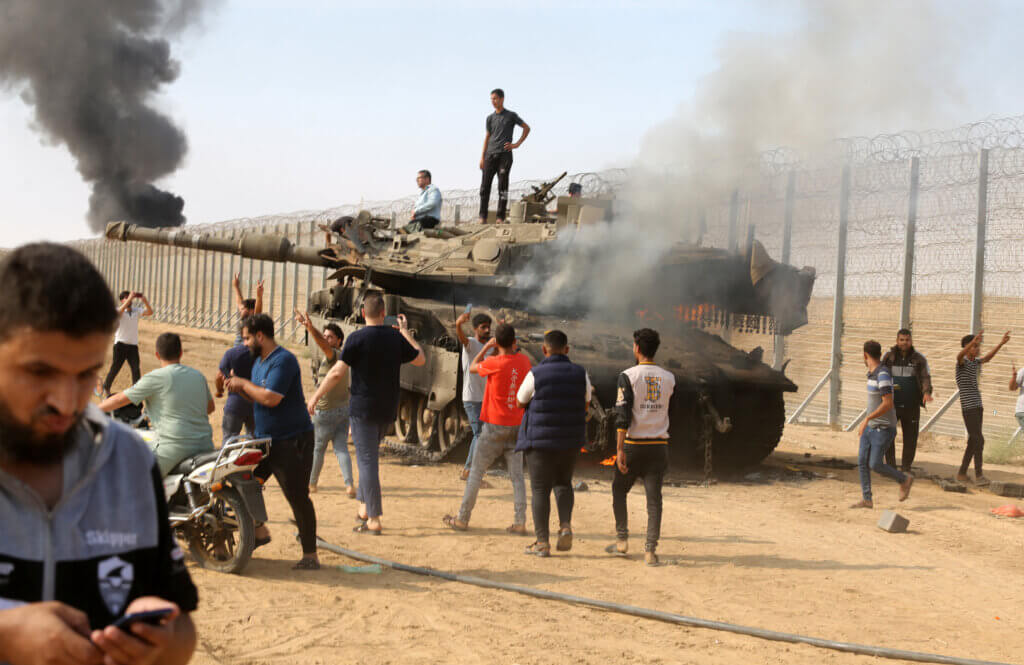
Without missing a beat, an unprecedented operation that shattered the notion of imperial invincibility was recast as an imperial tool. It was part of a larger master plan to further entrench and expand dominion — the natives were senseless pawns at the disposal of an all-knowing, intellectually supreme colonial power. From this strain of thought — and into it — expound several other truths, half-truths, and lies that evidence it and solidify its grasp. Israel actually supports and created Hamas, some say. Netanyahu planned this to win the upcoming election, others maintain. And my personal favorite — particularly because it has now been fleshed outby the New York Times‘s Zionist stenographers — Israel knew about this all along.
Surely, the next discovery shall be that Israel knew of the Al-Aqsa Flood before the Palestinians themselves, that they concocted it, introduced it to Hamas, and planted it in Palestinian minds. Undergirding all of this — and constituting these theories’ collective raison d’être —is the unthinkability of slave (or native) revolt.
The unthinkability of slave revolt is a concept introduced by Michel-Rolph Trouillot to explain Western Imperial responses, silences, and silencing of the Haitian Revolution. While Trouillot uses it in relation to the imperialists of the 18th century, this unthinkability applies seamlessness to the present — the empire, its ideologies, its colonialism, its genocides, and its colonies are not histories to be studied, but material realities and violence experienced today.
At the outbreak of the Haitian Revolution, the most common reaction in France, England, Spain, and the U.S. was disbelief. The news was false. The facts — much like those of the Al-Aqsa Flood — were too unlikely. In any case, the facts had to be false, because the blacks, like the Palestinians, were mindless beasts, savages whipped into docility, lazy, disorganized, and inferior — they were flatly incapable of thinking up such an operation, much less organizing themselves or carrying it out.
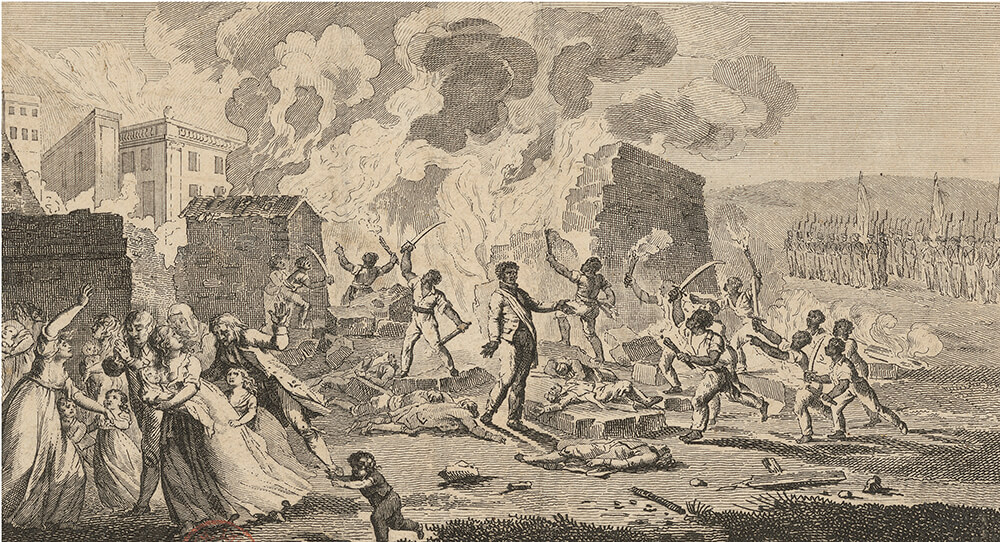
Even if they had somehow conjured spirits and performed these miracles, the intellectual, military, economic, and racial superiority of the whites ensured that they would swiftly be quelled, shackled, and put to work once more. The issue, however, was precisely that the West was reacting — after the fact — and devising explanations as the blacks and Palestinians enacted the unthinkable, actively neutralized colonial forces, and reclaimed lands.
Slowly and begrudgingly, the reality of the operations sank in. News of merciless black hoards massacring whites reached Europe, and the Zionists proclaimed the “Horrors of St. Domingo,” anew. The news then had to be rationalized a different way — the plain facts were, are, still unthinkable. Thus, the revolution was “an unfortunate repercussion of planters’ miscalculations,” the Al-Aqsa Flood was the result of Israel’s “yearslong cascade of missteps,” “it did not aim at revolutionary change,” it did not aim at decolonization, “it was not supported by a majority of the slave population,” it was Hamas acting alone and the Palestinians did not support them, “it was due to outside agitators,” Iran instigated it, “it was the…consequence of various conspiracies connived by non-slaves,” there were “leaks inside the Israeli security establishment.” With the blacks and Palestinians intellectually nil, “every party chose its favourite enemy as the most likely conspirator…[and] accused each other of being the brains behind the revolt.” In Haiti, it was the British, Royalists, and mullattos; in Palestine, Iran was the mastermind, and behind them, Russia and China.
Here, some will likely rush in to hurl abuse or lay the charge of naivety for my disregarding of the glaring facts (as though I were the empire) of Zionist knowledge. I shall clarify. None of what I have written is to say that the Zionist regime definitively did not know — though my gut instinct still hesitates to believe they did — but rather that the operation was unthinkable for them, that their knowing/unknowing is irrelevant, and that the unfolding of events and their outcomes lies not in their omnipotent hands, but those of the Palestinians, the owners of the land, and the resistance.

Interestingly, amidst all the imperial tachygraphy work presented in the Times investigation of the Al-Aqsa Flood, there is one line that has been overlooked and discounted most in the effort to bombard the ground-breaking successes of October 7 back into the realm of the imperium, under siege, or better, out of memory.
This line, then, can be gleaned to possess potential truth:
“[Israel maintained the] fatally inaccurate belief that Hamas lacked the capability to attack and would not dare to do so…[a] belief so ingrained in the Israeli government…that they disregarded growing evidence to the contrary.”
Note the perception of Palestinian incapability — and docility through fear — as well as the acknowledgment that such an operation was so viscerally unthinkable that the Zionists, like the Europeans of 1792, belied their own eyes. Such is the arrogance of empire, and therein lies its destruction.
Imperialism rests on the idea of it, the centrality and supremacy of the self over those awaiting conquest and civilization. The primariness of the empire relies on the secondariness of the Other. Imperial superiority relies on native inferiority. Yet, paradoxically, this secondariness and inferiority is indispensable to the primariness and superiority of the European and of empire. Events like the Haitian Revolution, the Milk Bar Bombing, and the Al-Aqsa Flood, invert, revert, or shatter these hierarchies completely.
Hence, for the native, this violence is a “cleansing force,” it frees him “from his inferiority complex and his despair and inaction; it makes him fearless and restores his self-respect.” To follow this through, if the native is freed from his inferiority complex, he is no longer inferior; if he is no longer inferior, the colonizer is not superior; if the colonizer is not superior, then the idea of empire is compromised, the idols collapse, and imperialism falls.
Thus, Fanon writes, “it is precisely at the moment he [the native] realizes his humanity that he begins to sharpen the weapons with which he will secure his victory.” The function of the rationalizing theories elucidating the unthinkable then becomes apparent — it is the preservation of dominion, of hierarchy, of settler-futurity, of the imperial self.
The threat posed by any native act of resistance anywhere in the colonized world is not merely a material threat to its direct target or local lordship but an existential scourge against the empire and imperialism as a whole. In the ever-pertinent words of Ghassan Kanafani, “Imperialism has laid its body over the world, the head in Eastern Asia, the heart in the Middle East, its arteries reaching Africa and Latin America. Wherever you strike it, you damage it, and you serve the World Revolution.”
I must conclude with an explanation. The idea for this piece first came to me on October 7. I have contemplated writing it ever since but found myself barred by the devastation of genocide. How can I write about anything besides the genocide? Indeed, as you have been reading this piece, a Palestinian child — the soul of someone’s soul — was murdered in Gaza. Every 7 minutes. As the days blurred into months, to think, speak, or write about anything else felt increasingly inappropriate, even immoral. After endless debate, I remembered the pattern of colonial history — following a native act of resistance comes the settler colony’s most ferocious and unbridled brutality. It is designed to teach a lesson, to make the native forget his triumphs — however small — so as to engulf him in fire and drown him in blood until he is consumed. This erasure and conquest cannot be allowed to go unchallenged.
As we watch news agencies, politicians, ideologues, and spectators explain the unprecedented away, stripping the Palestinians of agency — and humanity — we must recognize the sanitizing, civilizing, and trivializing cogs of the imperial machine at play. As the bombs drop on Gaza, seeking to obliterate the Palestinians’ memory of their victory, bury their glimpse of liberation in the rubble, and erase the world’s memory of their presence, we must not forget. On October 7, Palestine toppled the imperial world order, and today, or tomorrow, in ten years or a hundred, it will be free.
____
Zubayr Alikhan is a writer and activist whose primary focus is on Indigenous liberation and decolonisation around the world. He writes on issues highlighting settler-colonial terror and championing indigenous resistance.
SOURCE: https://mondoweiss.net/2024/02/the-unthinkability-of-slave-revolt/
